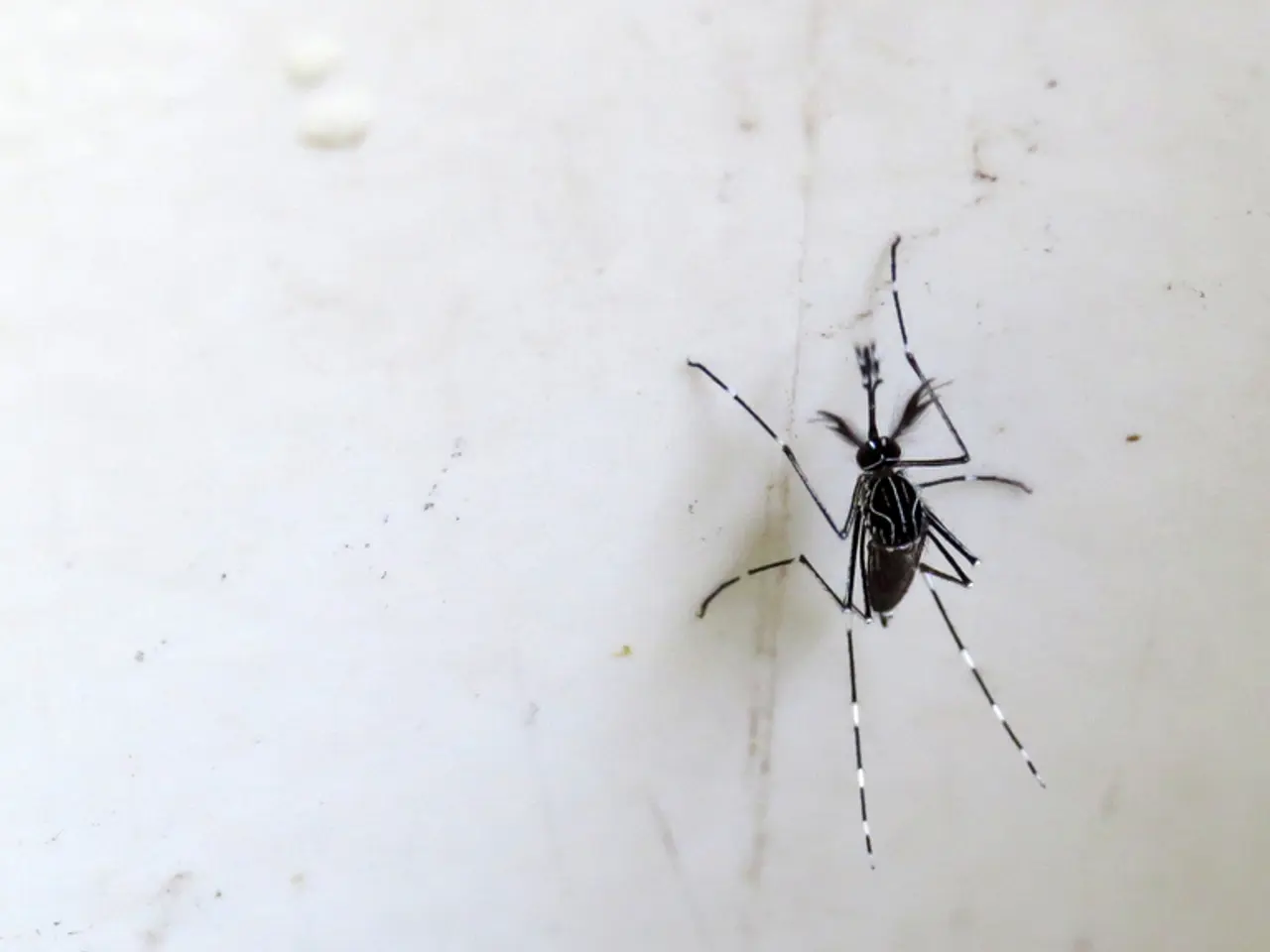Comparing Coconut Oil and DEET as Mosquito Repellents
Three strategic methods to effectively ward off mosquito assaults
In the ongoing battle against mosquitoes, two common repellents have gained prominence: coconut oil and DEET. Both have their unique properties and have garnered attention for different reasons.
Coconut Oil
Coconut oil, with its fatty acid composition of lauric, capric, caprylic, and myristic acids, has been touted as a natural mosquito repellent due to its strong scent[1]. The belief is that this scent interferes with mosquitoes’ ability to locate hosts. While promising, there is limited direct scientific evidence quantifying the effectiveness of coconut oil compared to synthetic repellents like DEET.
Practical use suggestions include applying virgin, unrefined coconut oil generously and reapplying every two to three hours—especially after sweating or swimming—since its protection is less durable than chemical repellents[1]. Despite its potential benefits, coverage and duration are likely inferior to DEET-based products.
DEET
DEET (N,N-Diethyl-meta-toluamide) is the gold standard synthetic mosquito repellent, widely studied and proven to provide long-lasting protection (often several hours per application) against a broad range of mosquito species[2]. DEET’s efficacy is well-documented in both laboratory and field settings, and it remains the benchmark against which other repellents are compared.
Comparative Effectiveness
While coconut oil shows some insect-repellent properties, there is no robust, peer-reviewed evidence demonstrating that it matches DEET in duration or degree of protection[1]. On the other hand, DEET is proven to be highly effective for extended periods and is generally recognized as superior to most natural alternatives, including coconut oil.
For context, catnip oil (containing nepetalactone) has been shown in some studies to be at least as effective as DEET in laboratory tests and even more effective in certain field tests for up to two hours[3]. However, results are mixed, and more research is needed to confirm these findings across different conditions and mosquito species[3].
Lemon eucalyptus oil (specifically oil of lemon eucalyptus, OLE) is the only natural repellent with significant scientific support, offering protection almost as good as DEET when used at high concentrations (30–40%)[2][5]. Even so, DEET typically lasts longer and is more reliable across diverse environments.
Practical Considerations
Coconut oil may be a safer, eco-friendly option for those seeking to avoid synthetic chemicals, but it requires frequent reapplication and may not be practical for prolonged outdoor exposure or in high-risk areas for mosquito-borne diseases[1]. On the other hand, DEET remains the most reliable choice for maximum protection, especially in regions where mosquito-borne illnesses are a concern.
Conclusion
While coconut oil exhibits some mosquito-repellent properties, it is not as effective or long-lasting as DEET[1]. For those prioritizing natural products, lemon eucalyptus oil (OLE) is a better-studied alternative, but even it does not universally match DEET’s performance[2][5]. DEET continues to be the most effective and dependable option for preventing mosquito bites in most situations.
In addition to repellents, practical measures such as wearing light-coloured clothing, using fine-mesh nets or insect screens, and avoiding tight-fitting, thin fabrics can also help deter mosquitoes[4]. When traveling, it's important to follow these precautions to ensure a mosquito-free environment.
- As we delve deeper into health and wellness, it's worth considering additions to our workplace-wellness programs that promote fitness-and-exercise, mental-health, and skin-care.
- Incorporating therapies-and-treatments such as yoga, mindfulness sessions, and facials could greatly enhance an employee's lifestyle.
- Encouraging outdoor-living, whether it's taking lunch breaks in the park or organizing company hikes, fosters a healthier, more connected workforce.
- To further boost well-being, offering fashion-and-beauty vouchers for sustainable-living brands might stimulate interest in eco-friendly clothing and cosmetics.
- Health-conscious employees could appreciate discounted food-and-drink options from local establishments that prioritize healthy-cooking and organic ingredients.
- Home-and-garden workshops teaching simple, sustainable-living practices could help employees reduce waste and live more eco-friendly lifestyles.
- As part of a wellness initiative, offering car-maintenance workshops (or collaborating with local garages) could educate employees on how to maintain their electric-vehicles more efficiently.8.Organizing travel opportunities, such as team-building retreats or conferences in scenic locations, can broaden perspectives while prioritizing a healthy work-life balance.9.Promoting the use of cars that have lower environmental impacts, such as electric vehicles, aligns with the company's commitment to sustainable living.10.By offering lifestyle benefits like these, the company demonstrates its dedication to employee health and wellness, fostering a stronger, more engaged workforce.11.As the world continues to place greater emphasis on health-and-wellness, companies that prioritize worker well-being are likely to see increased productivity, happiness, and retention.




